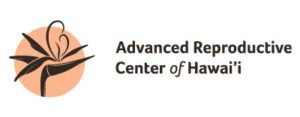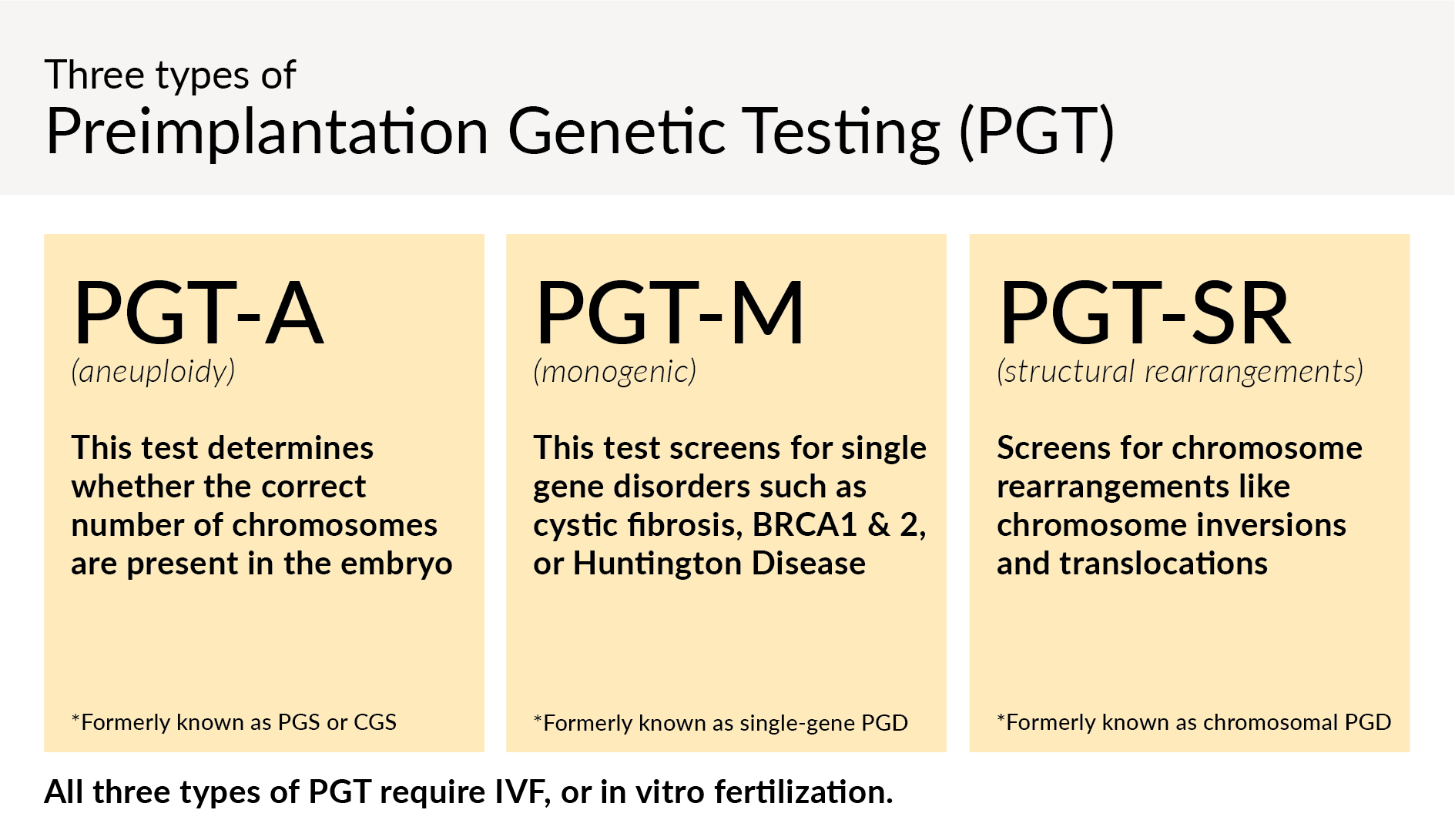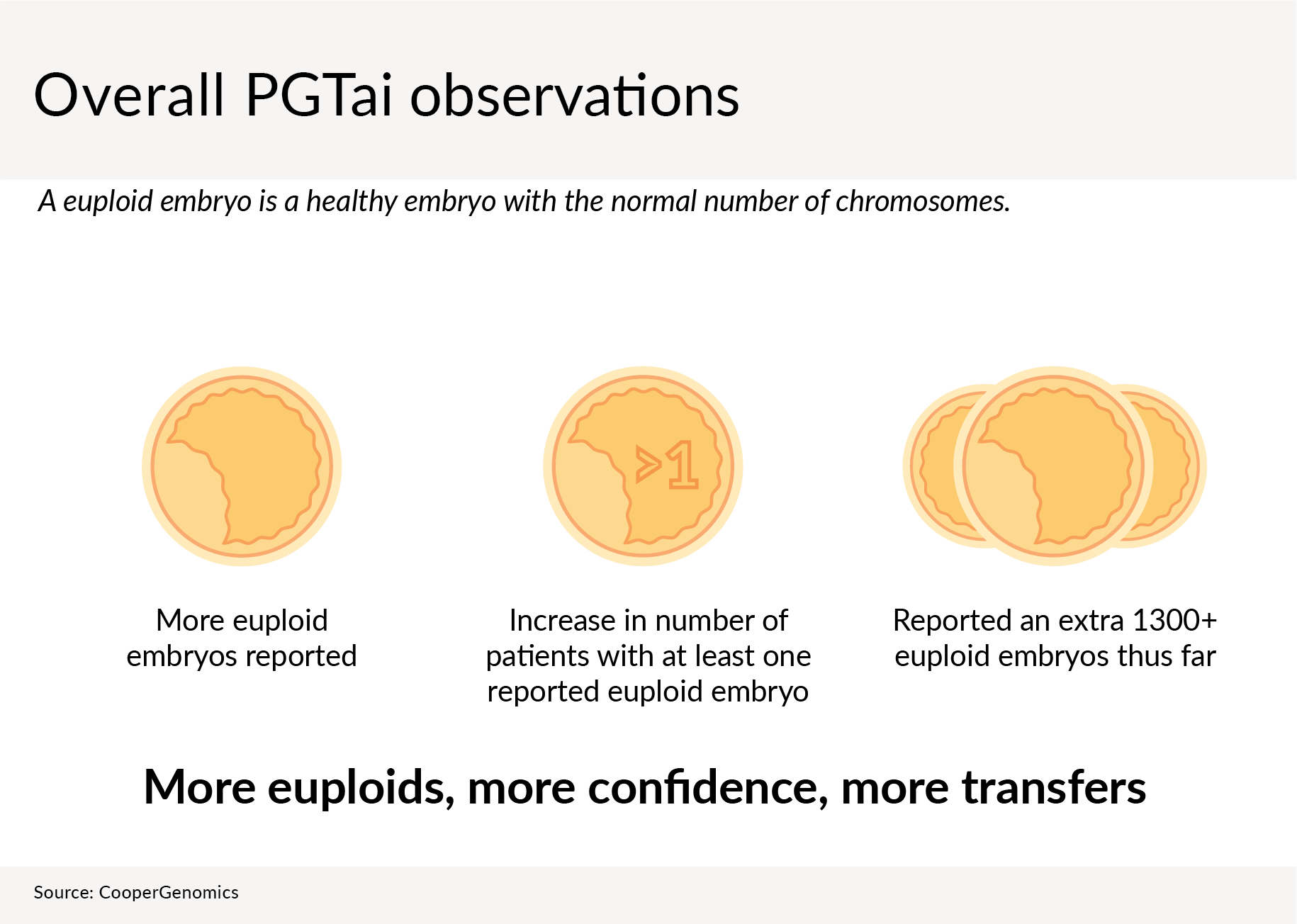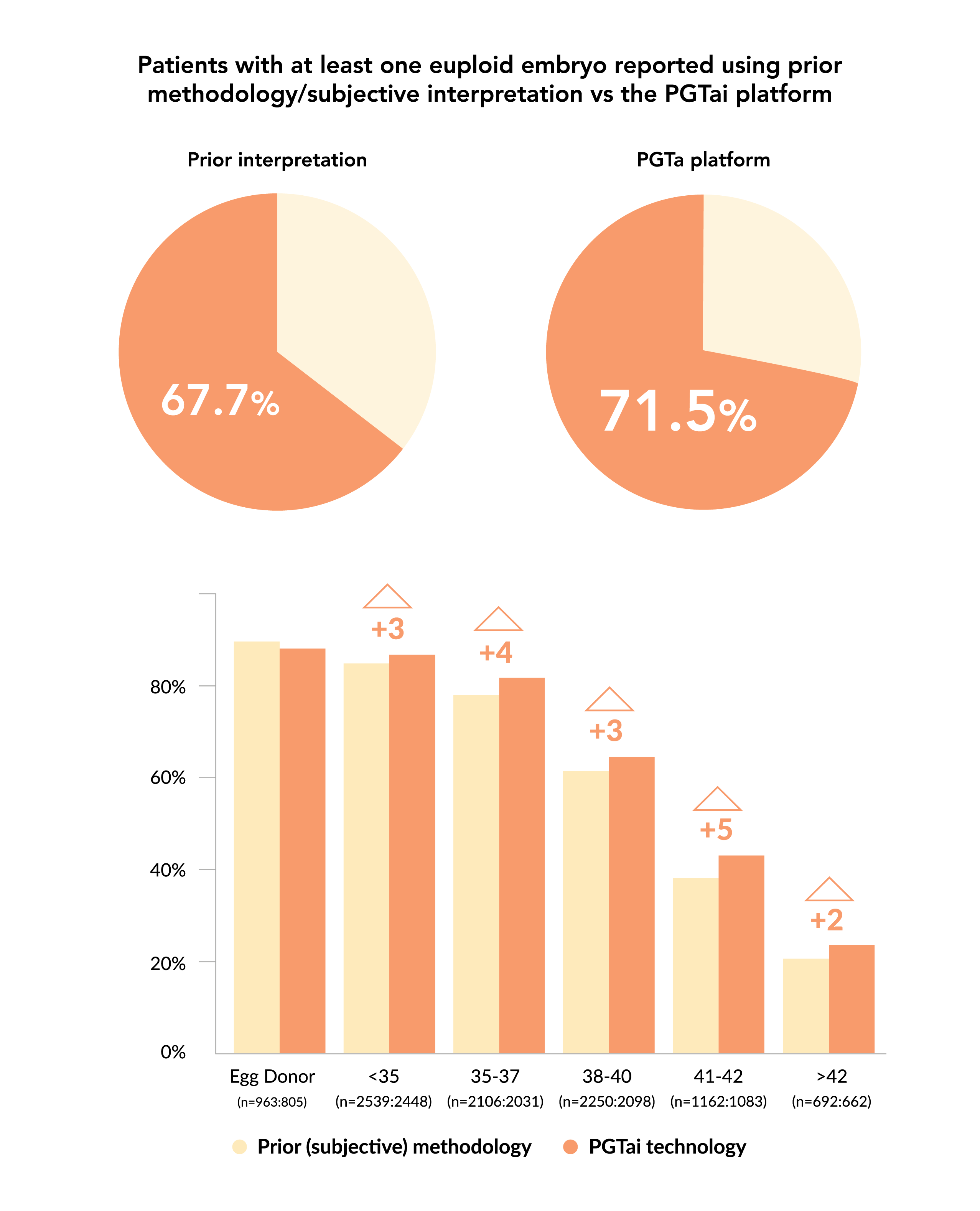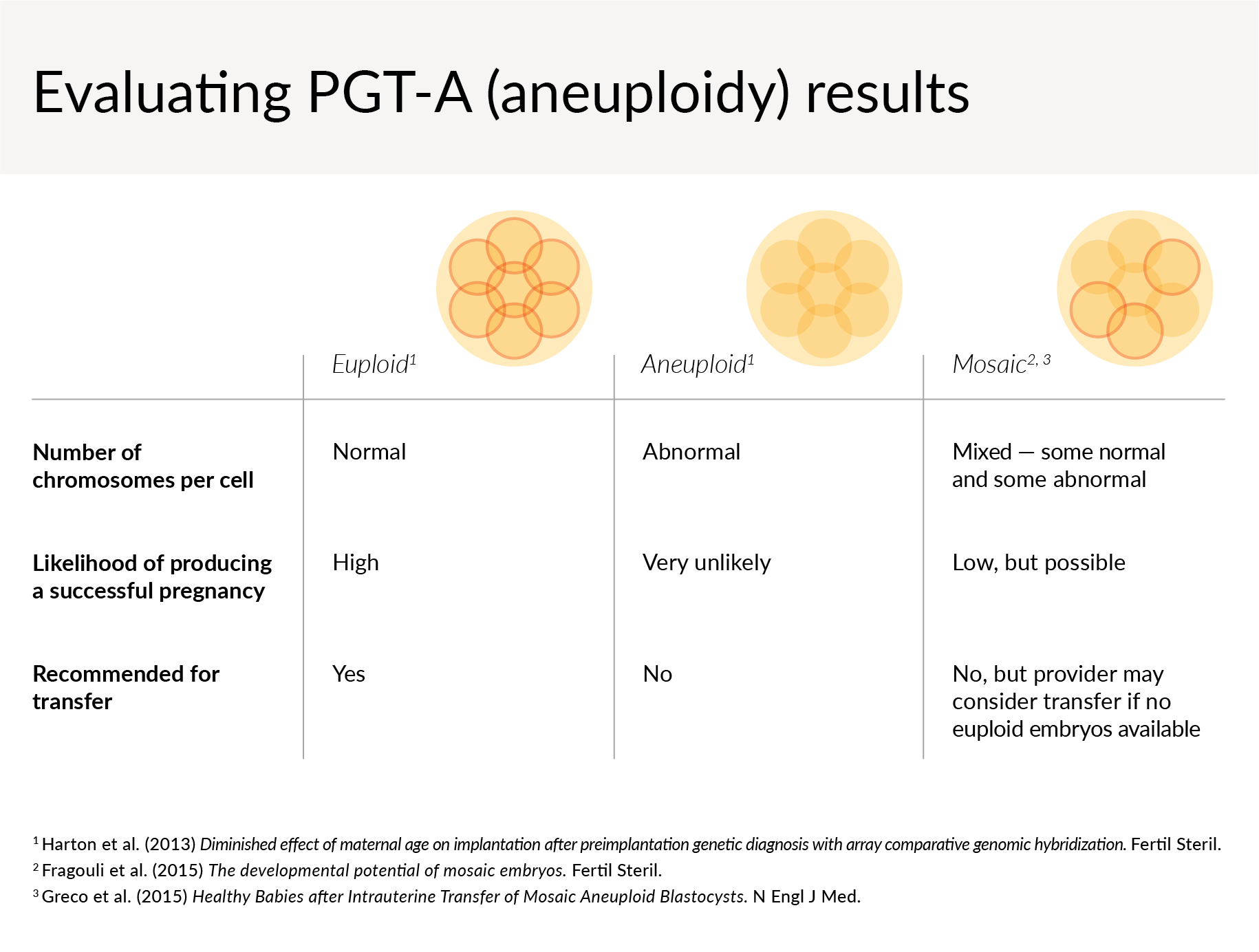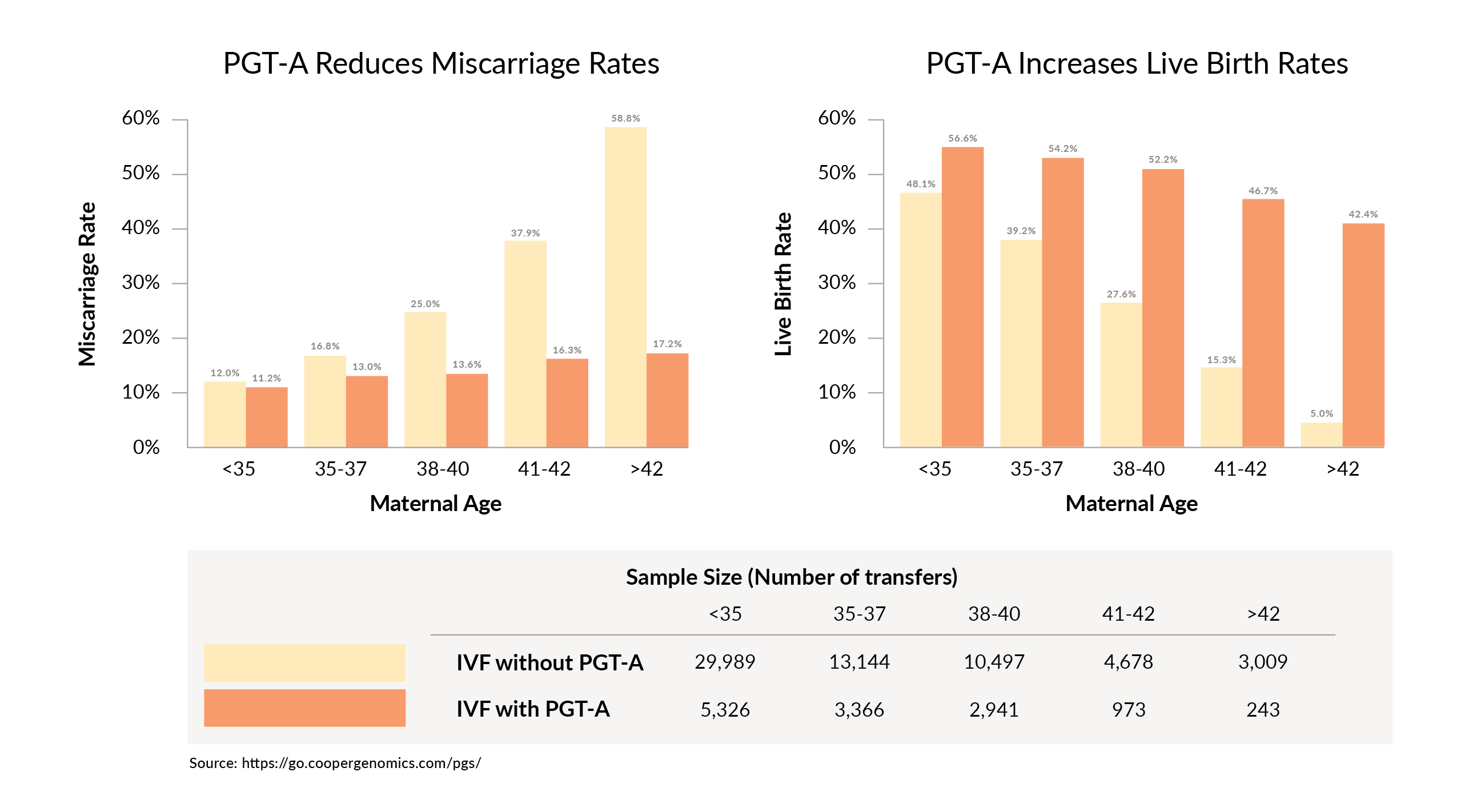Infertility Treatments: Advanced
Pre-Implantation Genetic Testing
Pre-Implantation Genetic Testing with Artificial Intelligence Technology, Screens the Number of Chromosomes to Improve the Chance of IVF Success
Advanced Reproductive Center of Hawaii was the first clinic to perform Pre-implantation Genetic Testing in Hawaii, resulting in an increase in first transfer pregnancy rates.
Pre-implantation Genetic Testing (PGT) includes three well-proven technologies that have recently increased in popularity:
Selecting the Best Embryo For Transfer
A recent advancement in technology from CooperGenomics, incorporating artificial intelligence is providing superior results in preimplantation genetic testing. The data is analyzed using mathematical algorithms and machine learning technology to provide greater accuracy. This advancement has resulted in identifying more healthy embryos, greater confidence in selection criteria and 1300 more embryo transfers during the first six months of use.
Genetic testing is performed on embryos produced through in vitro fertilization (IVF). The tests give information on the embryo’s chromosome content, identifying potential chromosomal abnormalities and helping to select the best embryo for transfer. Data from Cooper Genomics demonstrated a 4% increase in identifying at least one euploid embryo using the PGTai platform.
PGT Results
PGT or Pre-implantation Genetic Testing includes PGT-A or Pre-implantation Genetic Testing for Aneuploidies (extra or missing chromosomes), PGT-M or Pre-implantation Genetic Testing for Monogenic/Single Gene Defects and PGT-SR or Preimplantation Genetic Testing for Chromosomal Structural Rearrangements.
Advanced Reproductive Center of Hawaii has experienced remarkable results using PGT-M combined with PGT-A and blastocyst videography to increase fresh transfer pregnancy rates.
A study at the CHA clinic in Seoul Korea, known to be the largest study in Korea, provided data on pregnancy rates over 2 years at a single center, with the use of PGT-A and blastocyst biopsy. The study showed clinical outcomes resulted in:
- 44% higher clinical pregnancy rates
- 50% higher ongoing pregnancy rates
- 26% lower miscarriage rates
- 28% higher implantation rate
Testing for Genetic Abnormality
PGT-A is used to select embryos that are the most likely to implant and result in a successful pregnancy. They can test for an irregular arrangement in the total number of chromosomes (Aneuploidy), whereas PGT-M can test for a specific gene abnormality that one or both partners can have. It can reduce the risk to have a child with a known inherited disorder caused by mutations in a single gene (“monogenic”), such as cystic fibrosis or Huntington’s disease.
PGT-A (aneuploidy) results reveal that an embryo is euploid, aneuploid, or mosaic. Euploid embryos have a normal number of chromosomes per cell and have a high likelihood of producing a successful pregnancy, and are recommended for transfer.
As we get older, the architecture inside the egg gets older and is not as proficient as when it was younger in bringing these two sets together, so there is an increased chance of having an irregular number of chromosomes in the developing embryo. We call this irregular number of chromosomes Aneuploidy. Down’s Syndrome is the most well-known form of aneuploidy, when there is a normal complement of chromosomes, 23 pairs, plus an additional number 21 chromosome resulting in a “trisomy,” or three sets of Chromosome 21.
PGT-M testing can test the arrangement of each embryo reducing the chances of putting back an abnormal embryo. The accuracy of PGT-A and PGT-M is approximately 99%. Putting back a chromosomally normal embryo can significantly decrease your chances for having a miscarriage.
Testing is usually performed on the fifth day after egg retrieval or the blastocyst stage. At this point there are many cells in the developing embryo. Our embryologist, using a laser and microscopic techniques, delicately creates a hole in the shell of the embryo and then removes several cells from each of the developing embryos. These are then placed in a special solution and delivered to our affiliate laboratory, CooperGenomics(one of the most experienced cytogenetics laboratories in the world) and now using artificial intelligence technology. The laboratory will then determine which embryos are affected. We feel strongly that the most accurate test should be performed on these cells. Not all IVF programs use the most accurate testing techniques.
That information is relayed back to us and the good embryos are then used for embryo transfer. Over 300 different disorders can currently be diagnosed and prevented using PGT-M.
Recurrent miscarriages and repetitive failed IVF may also be due to genetic abnormalities. Sometimes PGT-A can help identify these abnormalities. If a parent or parents have or are carriers of a certain genetic disorder, the embryos created can be tested for this disease. Special probes are designed specifically for the parent’s disorder.
PGT-M is frequently performed with PGT-A. Once the cells are isolated, the specific probe can be used to identify affected embryos. Only embryos classified as normal will be transferred back into the woman’s uterus.
PGT-SR is different from PGT-A, as in these cases the chromosome abnormalities are hereditary due to one or both parents having a balanced chromosome “structural rearrangement.” PGT-SR reduces the risk of having a pregnancy or child with an unbalanced structural abnormality, which involves extra or missing genetic material and typically results in a pregnancy loss.
Conclusion
PGT combined with our cutting edge research involving the embryoscope and time-lapse photography may help select better quality embryos for transfer, decreasing the time to pregnancy and delivery.
Contact us today about Pre-Implantation Genetic Testing or any of our assisted reproductive services here in Honolulu, Hawaii.
Call (808) 949-6611 to Schedule Your Fertility Consultation or
